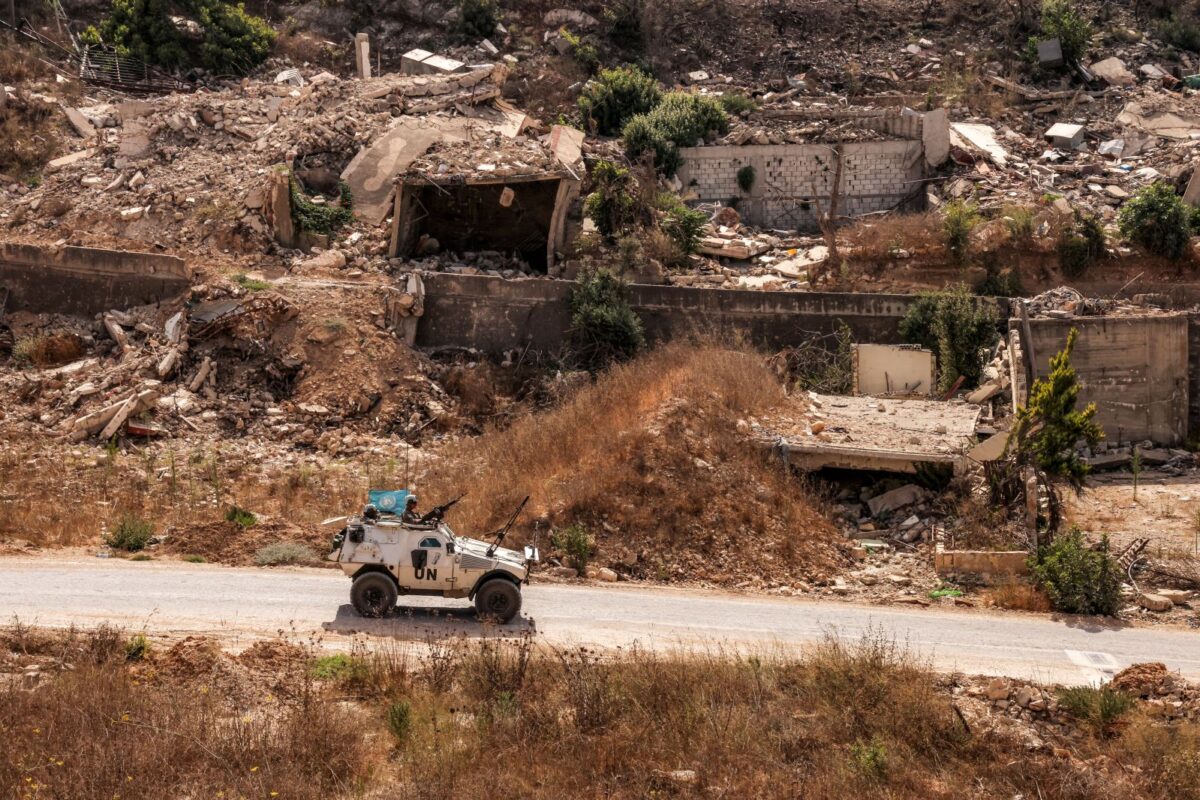
The UN Security Council has voted to terminate the mandate for the UNIFIL peacekeeping force in southern Lebanon at the end of next year after nearly five decades. It comes after Israel and the US pushed for the force to be ended, calling on the Lebanese armed forces to take on greater responsibility for eliminating the influence of Hezbollah’s militant group
UNIFIL has played a significant role in monitoring the security situation in southern Lebanon for decades. It was initially created to oversee the withdrawal of Israeli troops from southern Lebanon after Israel’s 1978 invasion, but its mission was expanded following the 2006 Israel Hezbollah war.
The Security Council unanimously adopted Resolution 2790, extending UNIFIL’s mandate for an additional 16 months. After that period, the resolution calls for a gradual and orderly withdrawal of the peacekeeping force within one year.
The Security Council also called on Israel to withdraw from areas north of the Blue Line and from five disputed points inside Lebanese territory. It urged the Lebanese authorities to deploy in the areas vacated by Israel, with support from the United Nations.
Lebanese officials have warned stability in the region remains fragile following last year’s hostilities between Israel and Hezbollah.
President Joseph Aoun welcomed the decision and thanked all 15 members of the Council for their unanimous vote, expressing particular appreciation to France for drafting the resolution and to the United States for its understanding of Lebanon’s circumstances and support for the French text.
For almost 50 years UN peacekeepers have been patrolling Lebanon’s southern border with Israel. The renewal underscores the mission’s role in supporting the Lebanese army and enforcing Resolution 1701.
For years Israel has blamed peacekeepers for failing to prevent Hezbollah military buildup, now Lebanese officials are concerned because the US also wants the force to wind down.
Lebanon has a clear interest in keeping UNIFIL in place, both for practical and political reasons. The state, he noted, is not currently capable of filling the gap that would be left by the withdrawal of around 10,000 international troops who support the Lebanese army in the south.
The UNs presence is important for Lebanon’s new leadership as for the first time there is a garment decision to disarm Hezbollah which is also one of the terms of a ceasefire with Israel.
The army has moved into the south and began dismantling the group’s military infrastructure and it’s doing so with the help of the UN force.
A UN withdrawal could create a vacuum. The Lebanese army is already overstretched and under-resourced. They are deployed in the south and along the border with Syria where smuggling is rising. Troops are also in flashpoints to contain communal tensions.
Ahead of the vote, UNIFIL spokesperson Andrea Tenenti questioned how UN Security Council Resolution 1701passed at the end of the 2006 war to halt fighting between Israel and Hezbollah, could be enforced while Israeli forces remain in Lebanon.
“The commitment of the Lebanese government is there, but how can they be deployed everywhere in the south if the Israeli Military is still present in the south?” he asked.
Lebanon needs UNIFIL as a political and diplomatic shield against Israel. The force also at times acts as a mediator, facilitating indirect military meetings between the Lebanese and Israeli armies to resolve border disputes.
For the Lebanese government a military observer force was still needed to serve as a witness and as a sign of international commitment to peace.
Prime Minister Nawaf Salam said the extension represents a “transitional phase” that will conclude with a gradual and safe withdrawal. He stressed the importance of UNIFIL’s continued presence in a way that safeguards Lebanon’s sovereignty and strengthens coordination with the army.
Violations
UNIFIL’s mission has not been without challenges. In recent years, its patrols have at times faced friction with local residents, including occasional attacks. Israel, meanwhile, accuses the force of failing to stop weapons smuggling to Hezbollah, while Lebanon maintains that UNIFIL’s mandate is limited to monitoring and logistical support, without interfering in the army’s duties.
Yesterday morning, Israel Defense Forces (IDF) drones dropped four grenades close to UNIFIL peacekeepers working to clear roadblocks hindering access to a UN position close to the Blue Line, UNIFIL said in a statement on X. The peacekeepers were working to clear roadblocks, which were hindering access to a UN position, UNIFIL said.
Any actions endangering UN peacekeepers and assets, and interference with their mandated tasks are unacceptable and a serious violation of Resolution 1701 and international law,” UNIFIL said, referring to the resolution adopted at the end of the 2006 war to stop hostilities between Israel and Hezbollah.
UNIFIL had informed the IDF beforehand about its road clearance activities southeast of Marwahin. After the incident, the operation was halted yesterday as a precaution to ensure the peacekeepers’ safety.
During its war with Hezbollah, Israel targeted UNIFIL positions, wounding several peacekeepers.
UNIFIL’s mandate limits its role to observation, allowing the use of force only in cases of self-defense. Any breaches are therefore handed over to the Lebanese army, which carries the responsibility of disarming Hezbollah in the south.
Following a Cabinet decision on August 5, the Lebanese army has drawn up a detailed plan to place all weapons under state authority before the end of the year. The plan is set to be presented on Friday by Army Commander General Rodolphe Haykal.
Rodayna Raydan is a Lebanese-British journalist. You can follow her on Twitter @Rodayna_462
The views in this story reflect those of the author alone and do not necessarily reflect the beliefs of NOW.6








